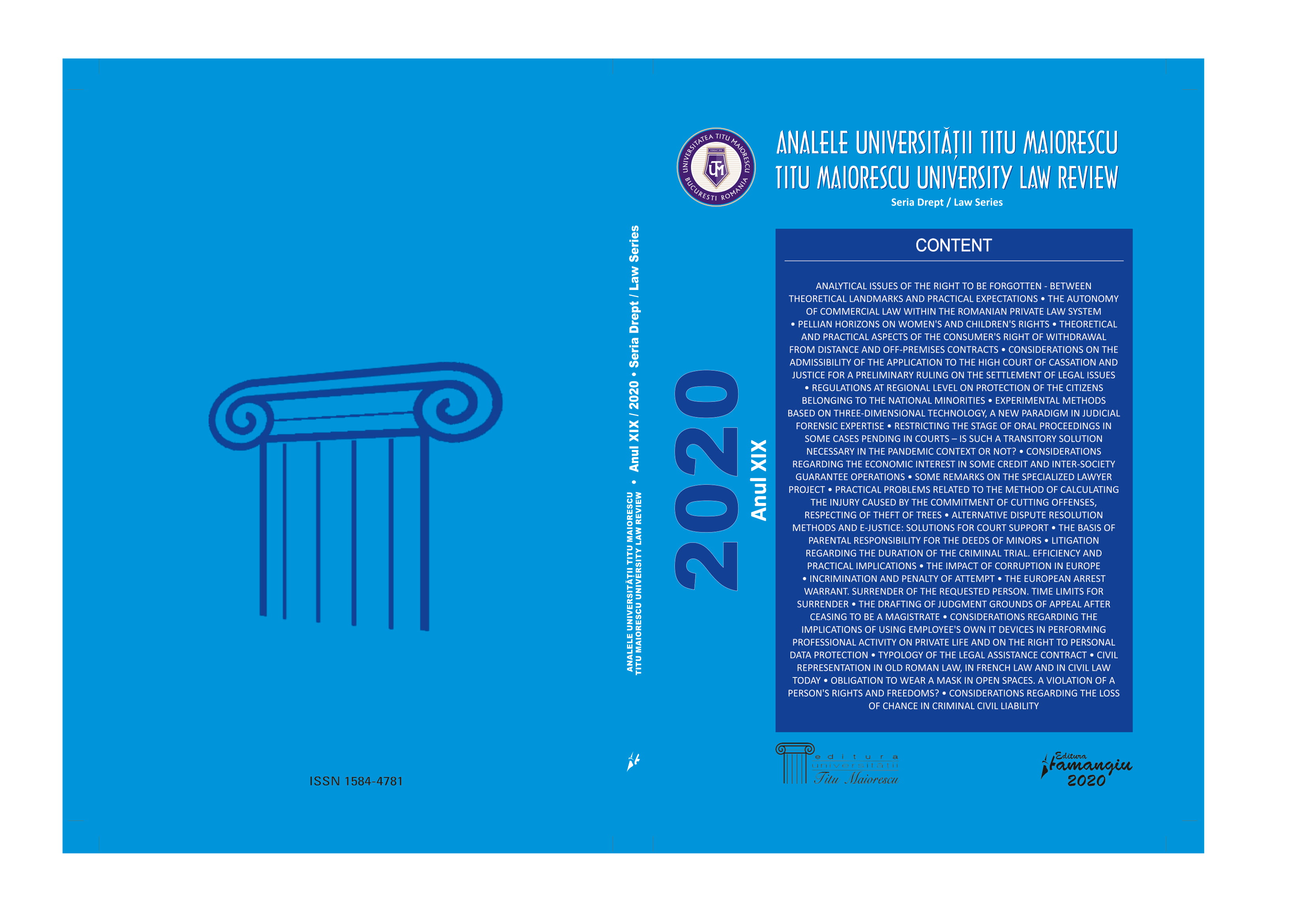LITIGATION REGARDING THE DURATION
OF THE CRIMINAL TRIAL. EFFICIENCY
AND PRACTICAL IMPLICATIONS
LITIGATION REGARDING THE DURATION
OF THE CRIMINAL TRIAL. EFFICIENCY
AND PRACTICAL IMPLICATIONS
Author(s): Ovidiu Viorel MaziluSubject(s): Law, Constitution, Jurisprudence, Criminal Law
Published by: Editura Hamangiu S.R.L.
Keywords: reasonable time; challenge; stalling; violation;
Summary/Abstract: The issue of violating the reasonable time of the criminal trial has been a constant in terms of the Romanian State. That this is the case is proven precisely by the case Vlad and others v. Romania, where it was held that, until the judgment was pronounced in that case, the European Court of Human Rights found that the Romanian State had violated the reasonable time in approximately 200 other cases, noting that another 500 similar cases were pending at the time. From this perspective, it was held that in order to preclude and/or prevent the recurrence of such new situations, it is necessary to identify procedural remedies at national level and implement them with expedience. Currently, the duration of the criminal trial phase, in terms of its length, becoming incompatible with the requirement of a peremptory reasonable time according to art. 6 paragraph 1 of the European Convention on Human Rights, art. 47 par. 2 of the Charter of Fundamental Rights of the European Union, entitles the person concerned to file an challenge regarding the duration of the criminal trial, in accordance with the provisions of art. 4881 of the Criminal Procedure Code.
Journal: Analele Universității Titu Maiorescu
- Issue Year: XIX/2020
- Issue No: XIX
- Page Range: 167-174
- Page Count: 7
- Language: English

